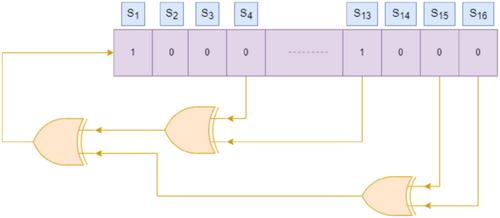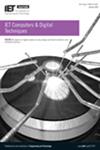来源期刊
期刊介绍:
IET Computers & Digital Techniques publishes technical papers describing recent research and development work in all aspects of digital system-on-chip design and test of electronic and embedded systems, including the development of design automation tools (methodologies, algorithms and architectures). Papers based on the problems associated with the scaling down of CMOS technology are particularly welcome. It is aimed at researchers, engineers and educators in the fields of computer and digital systems design and test.
The key subject areas of interest are:
Design Methods and Tools: CAD/EDA tools, hardware description languages, high-level and architectural synthesis, hardware/software co-design, platform-based design, 3D stacking and circuit design, system on-chip architectures and IP cores, embedded systems, logic synthesis, low-power design and power optimisation.
Simulation, Test and Validation: electrical and timing simulation, simulation based verification, hardware/software co-simulation and validation, mixed-domain technology modelling and simulation, post-silicon validation, power analysis and estimation, interconnect modelling and signal integrity analysis, hardware trust and security, design-for-testability, embedded core testing, system-on-chip testing, on-line testing, automatic test generation and delay testing, low-power testing, reliability, fault modelling and fault tolerance.
Processor and System Architectures: many-core systems, general-purpose and application specific processors, computational arithmetic for DSP applications, arithmetic and logic units, cache memories, memory management, co-processors and accelerators, systems and networks on chip, embedded cores, platforms, multiprocessors, distributed systems, communication protocols and low-power issues.
Configurable Computing: embedded cores, FPGAs, rapid prototyping, adaptive computing, evolvable and statically and dynamically reconfigurable and reprogrammable systems, reconfigurable hardware.
Design for variability, power and aging: design methods for variability, power and aging aware design, memories, FPGAs, IP components, 3D stacking, energy harvesting.
Case Studies: emerging applications, applications in industrial designs, and design frameworks.
期刊最新文献
Exploring Posit Multiplication: A Comprehensive Review of Booth and Logarithmic Mantissa Methods
Facial Emotion Recognition Method Based on Convolutional Neural Network
The Application of Augmented Reality Technology in Visual Communication Design
Research on Adding Global Registration Model in Video Coding With Local Affine Motion Model
A Systematic Literature Review on the Applications, Models, Limitations, and Future Directions of Generative Adversarial Networks



